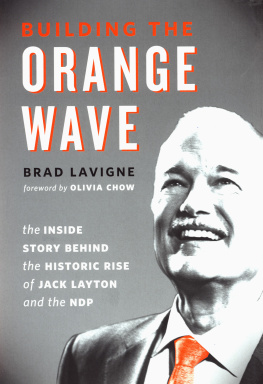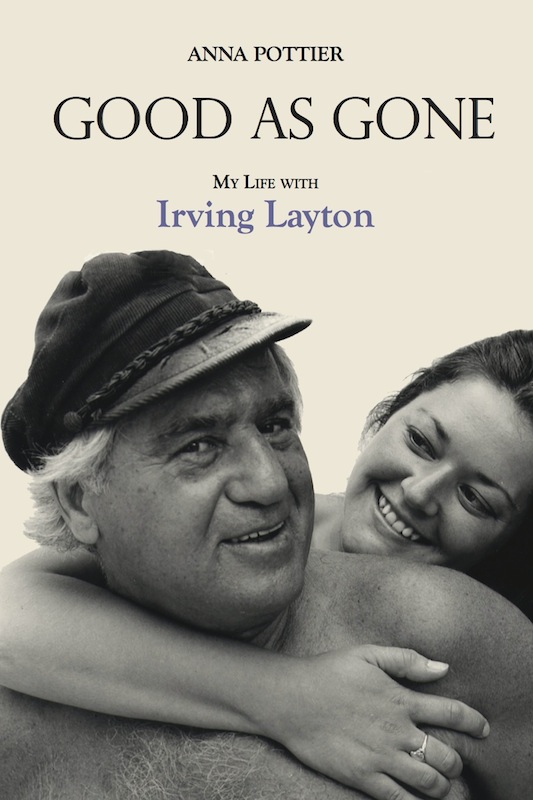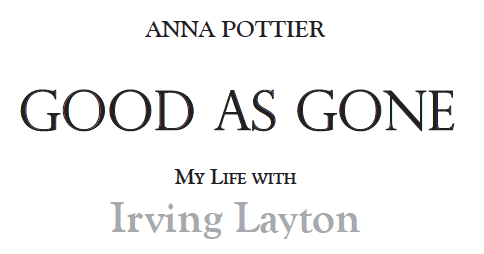Copyright
Copyright Anna Pottier, 2015
All rights reserved. No part of this publication may be reproduced, stored in a retrieval system, or transmitted in any form or by any means, electronic, mechanical, photocopying, recording, or otherwise (except for brief passages for purposes of review) without the prior permission of Dundurn Press. Permission to photocopy should be requested from Access Copyright.
Editor: Michael Melgaard
Design: Laura Boyle
Epub Design: Carmen Giraudy
Cover Design: Laura Boyle
Cover Image: Arnaud Maggs, courtesy of the Arnaud Maggs estate
Library and Archives Canada Cataloguing in Publication
Pottier, Anna, author
Good as gone : my life with Irving Layton / Anna Pottier.
Includes index.
Issued in print and electronic formats.
ISBN 978-1-4597-2856-1 (pbk.).--ISBN 978-1-4597-2855-4 (pdf).-- ISBN 978-1-4597-2854-7 (epub)
1. Layton, Irving, 1912-2006. 2. Pottier, Anna. 3. Layton, Irving, 1912-2006--Marriage. 4. Layton, Irving, 1912-2006-- Health. 5. Poets, Canadian (English)--20th century--Biography. 6. Authors spouses--Canada--Biography. I. Title.
PS8523.A95Z73 2015 C811.54 C2014-907671-1
C2014-907672-X
We acknowledge the support of the Canada Council for the Arts and the Ontario Arts Council for our publishing program. We also acknowledge the financial support of the Government of Canada through the Canada Book Fund and Livres Canada Books, and the Government of Ontario through the Ontario Book Publishing Tax Credit and the Ontario Media Development Corporation.
Care has been taken to trace the ownership of copyright material used in this book. The author and the publisher welcome any information enabling them to rectify any references or credits in subsequent editions.
J. Kirk Howard, President
The publisher is not responsible for websites or their content unless they are owned by the publisher.
Visit us at: Dundurn.com
@dundurnpress
Facebook.com/dundurnpress
Pinterest.com/dundurnpress
Dedication
To Grant Hickman
til the rivers all run dry
Preface
Whenever I see an old photo of Irving, say from the 1960s, it is like glimpsing an icon in its natural setting, removed from ordinary life. If shown with a former mate, his children, or bygone friends, a feeling of subdued respect takes hold. Many came before me; each had their Layton moments good and bad all of which will forever be beyond my ken.
Taken to its extreme conclusion, that sense of awed respect could preclude any attempt to write about Irving. That, however, would be grossly unfair to him, to me, and to who we were as a couple. After nearly fourteen years at his side and twenty years of silence, I must share something of my story. To paraphrase Irving: until I, fabulist, have spoken none of what transpired happened. Sophists might argue that even if all I saw, heard, and did with Irving took place, so what? Why should it matter that I know who he was at his most vulnerable, and during moments of hard-won triumphs? Does it ultimately matter that I can describe the afternoon he wrote the last complete poem of his career, or that I witnessed the effects of old age cutting relentlessly into his body and mind? He will always have his loyal detractors, just as he will continue to gather new readers. The best among the latter, like me, are never quite the same for having truly tasted his worth.
This book is my homage to and thanks for all that he lavished on me: his absolute trust, an Ivy League education taught at the table, during long walks, and in the pre-dawn light as he challenged me like the extraordinary teacher he was, all imbued with unconditional love.
Writing Good as Gone took close to a decade, partly due to the wrenching blows each memory of him loosed on me, like stinging jabs to the face and gut. Guilt and sorrow left me nearly mute for those first years after leaving him. I missed him. I miss him still, and wish I could have stayed on. That, however, would have meant my creative and emotional, if not physical, death. Because he loved me, he helped me to leave before the age difference transformed me into a hollowed-out, broken shell.
What I hope to convey in these pages is something of the sheer exuberance that marked our days and nights. He made pronouncements, some of them incendiary, but always, always , with compassion at the heart and root of the matter. Having practically no one to share my story with while living it, nor afterwards, I want now to take you by the hand and sit you down beside us, there to laugh, be surprised, and perhaps even be shocked at how very possible it is for love to conquer all. We had it , that secret ingredient that permitted us to overlook the obvious challenges and to nurture one another, cherishing the good that flourished between us. If I have done my best, the reader will come away feeling as if they, too, enjoyed a few moments in his company.
I regret nothing, but am pained to say whether I would do it all again. Very likely, yes. Yes, I would take the same risks, jump off the same cliff. It was worth it, though I could not survive another such aftermath.
Writing this book has been tantamount to building a long tunnel, fitted with a leather-bound, brass-studded door at the far end. Good as Gone , now done, enables me to open that door, step through, and close it ever so gently behind me with strength enough left only to whisper: Thank you my wild, peculiar boy, thank you and adieu.
A Note on the Quoted Material
The desire to stave off oblivion by writing things down began when I was at least nine years old. Taking note of Irvings words thus came naturally. Whether prompted by him to record a poems meaning or my own impulse to capture his thoughts, I scrambled for pen and paper, capturing his words verbatim. Underscores and bold lettering helped preserve his emphasis and rhythms of speech. Such jottings were caught scraps, written on whatever lay at hand, and were meant to be transcribed into journals such as The Blue Book or The Ledger. Most helpful, a near photographic memory enabled me to transpose entire conversations late at night directly into journal pages. Irving spoke with such forceful, well-crafted language that even casual remarks rang with memorable phrases. Transient Notes are snippets set down when I was away from the house and without my journal at hand. Some quotes are from The Changing Book, a journal begun in November 1981 while travelling in France. Its purpose was to record events that, well, left me irrevocably changed. The slim hardcover book, filled to its inside back cover, spans nineteen years. Much of the dialogue attributed to Irving throughout this work is from these sources. They have been edited for grammar, the underscores replaced with italics, but not for content. The words quoted are all Irvings.













